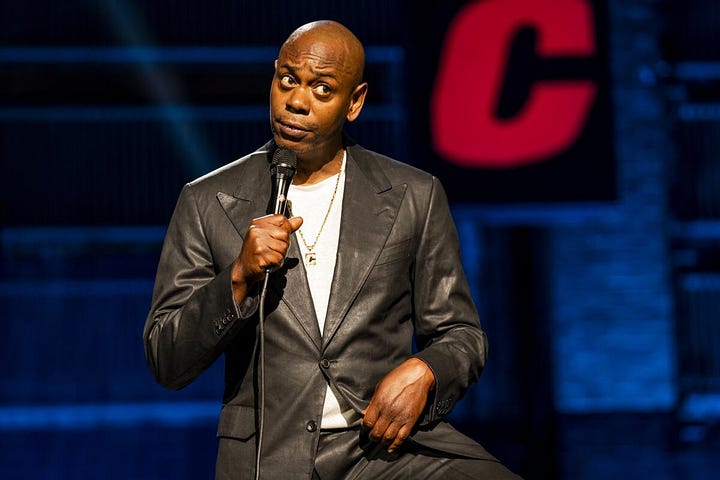The Impossibility of Goodness
Like the perfect body or ideal world, perfect politics will always be just out of reach
Why hello, subscriber! This essay is one of an additional two (2!) you’ll be getting this month as part of my Spring Has Sprung promotion. The second essay will launch my Unpopular Opinions criticism series! More details to come at the end of this post :)
*
I got coffee with my friend yesterday morning, our first in a long time, our second since I relocated to his city. Ours is a chilly climate, with cold snaps that can sometimes reach into the beginning of April. This coffee was a celebration of the cold’s abatement, an opportunity to emerge from hibernation and say hello to each other and discuss how wonderful it is to feel like human beings again.
Scones eaten and tea drunk, our conversation turned to a different sort of cold: the emotional climate in our city post-election. How 2016’s warmed-over brew of fear and outrage and #resistance had finally hardened into a kind of sanctimony, a feeling that life could not be enjoyed as long as the horrifying specter of structural inequality persisted.
My friend, who is white, told me about a book club he attends. The book club has a name like Uplifting Marginalized Voices or Anti-Racist Allyship Reading Group and its membership is made up of the kind of white person who, like my friend, is strongly committed to goodness and equality and the leveraging of resources for the betterment of the collective. This group meets to discuss books that ostensibly address how white people can grapple with and help remedy our country’s deep-seated, well-documented and persistent prejudices against people of color. But what typically ends up happening is a caring and ardently well-intended group of white people gets together in a room and talks about what irredeemable racist pieces of garbage they are, and what little ineffectual gestures they can make to allay the inevitable stress and misery of the poor people of color unlucky enough to have to interact with them.
One might be inclined to lob the all-too-familiar accusation of virtue signaling at this group, but that would be a wholly inaccurate read of the situation. In this case, there’s no one here to signal to besides six or seven other people who feel that they must be quietly exorcised of their awfulness so the lives of others can be better. Even if one were to turn on the waterworks and beat their chest and declare themselves the most racist white person ever born, there would be no points won through such a performance. This is a crowd short on fakery and high on empathy, a crowd that comes together week after week out of genuine concern for the state of the world and a desire to figure out how to do better – how to be better.
“The only answers we’re really finding are like, You’re so shitty, you should be less shitty and white supremacist.” My friend looked over his shoulder a little as he said this, as if the author of one of the book club’s anti-racist manuals might be standing behind us. “And, you know, if there’s something in the book that feels kind of off, like unnecessarily accusatory, we just don’t say anything about it.”
Though not every book my friend’s club reads is castigatory fare in the vein of Robin DiAngelo or Race2Dinner – some readings, he tells me, have been quite transformative for him – the mood of the group is typically fearful and self-punishing, its members churning through a well-worn cycle of leftist self-harm. First comes the self-blame, then the attempts to “unlearn” one’s racist badness, then feelings of futility as the unlearning seems so minor in comparison with crimes so vast, then distress over the futility, then self-loathing over the distress: Why do I succumb so easily to my white fragility while people of color are suffering and dying? What is wrong with me? Once again, blame seems the only tenable option. The only ethical option.
I know this cycle well because I lived it for years. In 2016, I feared the end of history had finally arrived as America transformed into the set of The Apprentice and The Donald himself told us whose presence would be permanently scrubbed from the boardroom of history. Civil rights would be rolled back, every single subjugate further subjugated, America’s christofascist-cisheteropatriarchal late-stage capitalist ultra-conservative death cult would reign supreme, and I and all my friends would become Offreds rotting away in the crumbling imperial core, cruelly forbidden by law from posting to sites.
My friend coined an excellent term for the emotional environment in which such piqued anxiety prevails: urgency culture. And circa 2016, I was in urgency culture’s grip – every single executive order had its accompanying protest at which my presence felt mandatory, every heinous threat made by Trump and his administration needed to be planned for and resisted, safe houses and mutual aid networks established. The future was gray at best, most likely very dark, and I was a foot soldier in a battle that had been going on for decades, even centuries, for The Donald was merely a symptom of a nationwide sickness.
As I was #resisting and posting and – most crucially – reading posts about #resisting, I became aware that I, too, was implicated in the sickness that had produced Trump. For I was privileged, both racially and economically, and able-bodied, and had done a not-too-shabby job at age twenty-eight of replicating my family’s economic class. Sure, I’d voted for the pantsuit woman whose inveterate groomer husband plays the saxophone, but how could that make up for the violent oppression of the millions of people who had it worse than me? What was I doing, on a day-to-day basis, to unpack the privilege I was carrying around with such narcissistic abandon? Did I just plan to live a life of easy avoidance, signing online petitions and logging a few hours at protests and then returning to my cush three-bedroom home and white collar job as though America wasn’t totally on fire from the neglect of timid white liberals like me? Would I survive the uprising, the rebellion, the inevitable Leftist Revenant when oppressed people everywhere would stand up and wrest the means of production from the hands of the bourgeoisie, i.e. people like me, the kind of middle class white woman who ought to be aggressively deprogrammed of my racism over a $2,500 dinner? Could I be worse than Trump, wolf in sheep’s clothing that I was?
I began to feel as if I’d been born under a bad sign: the sign of privilege. If I really cared about the absolute nightmare situation of our country – our world – then I would need to atone for that privilege immediately. Of course, the nasty fact of my privilege could not be erased – erasure was dishonest, anyway, verboten, the kind of thing Rachel Dolezal had supposedly attempted – but it could be ameliorated, its damage to the world corrected if I just gave my time and resources to the unending project of the world’s improvement.
And while there is certainly nothing wrong with wanting to build a more compassionate, better-resourced and equitable world, there is a difference between building-as-joy (and building-as-creativity, building-as-mindfulness, as love, etc.), and building-as-reprimand. It’s the latter that happens when one is in the grip of urgency culture, and it would be generous to call it “building” at all. Public self-flagellation? The leftist stations of the cross? Oppressor-signaling? Call it what you will: I did it for years and years and watched it accomplish nothing. All those admissions of my internalized white supremacy, all those acknowledgments of my privilege, of the stolen land I was standing on, of how I was “learning” and “trying to do better” and really appreciated the call-in (or call out, as the case may be) – it all added up to me pacing around my room doomscrolling, getting into pointless arguments with friends, sitting in book groups like the one my friend’s been attending, scared to discuss a Langston Hughes poem we’d all enjoyed for fear such a conversation might become “too academic,” too about the trivial aesthetics of words on a page instead of the very real threats being posed to BIPOC lives by the powers that be.
In other words, I spent years hating myself. And even with all that self-hatred, the Bad Man still got re-elected. But by then, I was too done with self-loathing to see his or any other U.S. presidency as an occasion for collective shame. Life is way too short for your sense of wellbeing to be tied to the outcome of any election cycle.
*
It wasn’t until I was teaching Simone Weil’s Waiting for God to a creative nonfiction class that I learned Simone Weil and Simone de Beauvoir had met. As a longtime philosophy nerd, this incredible meeting of the Simones certainly held my interest, and when I read de Beauvoir’s account of it, I was even more captivated.
Writing in her Memoirs of a Dutiful Daughter, de Beauvoir describes hearing of Weil during their overlapping time at the Sorbonne, Weil’s “great reputation for intelligence and bizarre get-up.” This made de Beauvoir want to meet her, as did Weil’s reaction to news of an outbreak of famine in China: “she had wept…these tears compelled my respect much more than her gifts as a philosopher. I envied her for having a heart that could beat right across the world.”
But when it finally did happen, the meeting of the Simones didn’t go nearly as well as de Beauvoir had hoped:
I managed to get near her one day. I don’t know how the conversation got started; she declared in no uncertain tones that only one thing mattered in the world today: the Revolution which would feed all the starving people of the earth. I retorted, no less peremptorily, that the problem was not to make men happy, but to find the reason for their existence.
She looked me up and down: “It’s easy to see you’ve never gone hungry,” she snapped. Our relationship did not go any further.
Reading this, it’s hard for me not to identify with both Simones. The great depth of feeling of Simone Weil, the self-abnegation and urgent desire to see the world’s betterment, her lack of patience for Simone de Beauvoir’s intellectualizing. (One can almost hear Weil quoting Audre Lorde here: “Survival is not a theory!”) But then there’s Simone de Beauvoir’s genuine admiration, curiosity and desire for a kind of intellectual kinship; her rigorous and interesting response to Weil’s urgent talk of a revolution – a conversation-starter in light of which Weil’s retort comes across as shrill and pointlessly antagonistic. At different points in my life, I have been on different sides of this conversation. I have been both Simones.
And what became of the Simones after their time at the Sorbonne? De Beauvoir would go on to become a giant of feminist theory and French poststructuralist philosophy, penning the trailblazing The Second Sex and novels like She Came to Stay[1] and passing in the late 80s after winning the Prix Goncourt and being thrice nominated for the Nobel Prize. Just like her walleyed existentialist life partner, de Beauvoir was fairly unconcerned with being good – a fact that shocked her many fans upon posthumous publication of her letters.
Simone Weil, by contrast, was obsessed with being good. Her empathy-for-the-dispossessed hunger strikes began in 1915, when at age six she stopped eating sugar in solidarity with the French soldiers on the Western Front. Though her Need for Roots would be regarded as highly influential and her explorations of Christian mysticism canonized in their own right, Weil would be too busy putting her life and livelihood on the line for the revolution in order to have a storied writing career. She was fired from her job teaching secondary school after joining a protest of striking workers; she attempted factory work as another gesture of proletarian solidarity but made herself sick from it; she attempted to fight with the anti-fascists in the Spanish Civil War but was too weak and myopic and nearly got herself killed. She died of a heart attack at age thirty-four in a British sanatorium: the cause was speculated to be self-starvation.
In Waiting for God, Weil writes not only that she feels herself unworthy of crossing any church’s threshold in search of a mystical experience, but that it is her lot to observe from without and find some way to believe in divinity despite the atrocious state of the world. She confesses that her love of spiritual music and religious ritual makes her worry that she might be just as susceptible to the Nazi volkslieder, songs used for ideological indoctrination.
When we read that section in class, one of my students – whip-smart and a brilliant writer – looked up at me with tears in her eyes. I quickly realized they were tears of rage.
“What a coward!” she exclaimed. “She’s writing all these letters about trying to find faith and be good and help the oppressed and then she admits to being vulnerable to fascism? Does she think she’s going to win us over with her so-called radical honesty while people were literally being gassed?”
It was a display of passion that would have been worthy of Weil herself, and I understood where the student was coming from. Weil’s admission must have seemed like the confessional of a Karen too plagued by her racist thoughts to keep them to herself, the kind of hopelessly obtuse liberal who selfishly commandeers the emotional labor of a black friend in order to purge herself of racial guilt. Never mind that Weil was trying to piece together how fascist groupthink is a phenomenon generated by humans that appeals to humans; she was making a performance of her guilt, taking up mental space that might have been better spent acting against fascism.
That Weil was averse to taking up space goes without saying – it’s more than reasonable to suspect she might have been diagnosed with anorexia if she’d been born a century later – and my student’s criticisms point to something highly valuable about this fact for those of us navigating our weird world today: for Weil, no amount of self-denial was enough to right the world’s wrongs. Despite a lifelong commitment to bettering the lot of the collective, Weil did not succeed. She is in death as she was in life: variously venerated and cancelled, another wayward soldier in the urgent campaign to eliminate human suffering.
*




One of the many insane things about having an eating disorder is that it just never stops. You will get to your goal weight and then suddenly find that’s not thin enough and so starve yourself some more and then find that’s not thin enough, either. The perfect body, the beautiful body, the safe body – it’s the body you’ll have in just two weeks or two months or maybe a little over a year. You just know you’ll hit a number on the scale that will feel like magic, you’ll look in the mirror and at last see a thin girl looking back at you, you will have hacked it, you only need to work harder, eat less, exercise more.
When I was a teenager, I wanted above all else to be solve-all-my-problems-thin. And when I reached my goal weight (and then my lower goal weight, and then my lower-lower goal weight), and all my problems were decidedly not solved, then I searched for the right combination of conditions to bolster myself. Was it that I needed to be thin and go to the right school? Land the perfect job? Have a certain amount of money in my bank account? Please the right people? Win the right prizes? Be the right gender? When after ticking several boxes myriad problems remained stubbornly unsolved, I felt cheated beyond belief. Why was none of it working? What was I doing wrong?
The human mind is a wily thing, and will do whatever it can to avoid feeling rudderless. If there is a bad feeling, then there must be some system of thinking that can extirpate it, some steps that can be followed, mantras chanted, schematics relied upon. Forget about total control over a situation – there must be at the very least some small thing to improve conditions to some degree, if not for ourselves then for the demands of the collective. Tame the body, banish the guilt, feed the beast. The problem is that the beast is never sated – it’s designed to never be.
Speaking of the backlash to Chappell Roan’s recent statement that she doesn’t have time to know everything about what’s going on in the world (one can almost hear the sound of millions of fingers smashing the words PRIVILEGED WHITE WOMAN into keyboards around the globe), one friend told me, “It honestly makes me take those performative ‘good’ people on the internet less seriously. If they truly cared about their ‘goodness,’ they’d be doing something productive with their time and building their own character instead of relying on celebrities to validate their values.” I understand her frustration; in fact, I share it. But consider this: when the task is to be unimpeachably good – so good that your goodness eliminates all inequality from the world, stat – then what recourse do you really have besides ensuring the goodness of others? This is where we land ourselves on a rickety treadmill, expending so much effort to go nowhere, compelling others’ speech in the name of justice – we are attempting to satisfy an impossible ask, and creating a climate of fear and intimidation as a result.
When I saw my “privilege” as a mark of Cain, there was no amount of reading or unlearning or calling others in that could finally redeem me. Like a Calvinist born unsaved, I could not overwrite the sovereign will of leftism: I’d simply begun life on thin ice and would continue skating along shakily until my inevitable cancellation. For a time, this made sense to me. I was complicit from birth in a system that regularly violated others’ human rights – benefited from it, even. Any fear or discomfort I was feeling was no doubt the voice of my inner bigot, kicking and screaming at the prospect of a more just social order.
But then I saw how cancellation will come for just about anyone. You could be a bisexual black woman and get cancelled. You could be a trans woman – a member of leftism’s number-one oppressed class – and get cancelled. It seemed privilege-induced blindness was more common than I’d thought. When someone I know well who’d spent the majority of her life in poverty was labeled “privileged” by a disgruntled former friend simply because she’d begun dating a passably middle class person, I began to understand how the word “privilege” was being used. Less as a heuristic to discuss social inequality and more as a way of keeping others in line. Did you post a Twitter rant about the militancy of white queers? Did you profess to like Buck Angel? Do your friends feel you’re spending more time with your girlfriend than with them? Have you done something we don’t like? Well, that was just your privilege showing, and it ought to be checked before you oppress anyone else.
I am now a year older than Simone Weil was when she died, and if I could have a single conversation with her,[2] it would be to tell her that she’s playing a losing game. Even if she were to starve herself in just the right way that magically fomented a revolution, there’d still be inequality to starve herself over during and after that revolution, oppressed classes who’d demand her solidarity. She could give and give and give of herself and never see the global goodness she wanted, because while community and compassion are important parts of human life, “goodness” is less tangible, more difficult to define. And perhaps for that reason, it’s constantly being redefined, the goalpost constantly moving.
Sometimes I wonder if the results are in the doing? If building a better world is in fact the same thing as inhabiting one? If the real goodness – the just and peaceable world that seems so far out of reach, forever diminishing on the horizon – is the love we experienced along the way? Because I’ll tell you this: when I’m on my deathbed, it’s not going to be the doomscrolling or the pronoun-correcting or the “good politics” that I’ll remember. It’s going to be who I’ve loved, and the beauty I’ve seen, and the ideas I’ve shared. The lives my life touched and was touched by. The creativity and compassion I’ve witnessed.
Is that gauche and self-centered to say, what with all the suffering in the world? Go ahead and cancel me.
*
Spring has sprung, subscriber, and so have the upgrades! If you become an annual paid subscriber this April ($50/year), you’ll automatically be upgraded to a Founding Member, which will entitle you to:
Two free gift subscriptions!
One signed and inscribed book of your choice, mailed to you for free!
And if you are so gracious as to become a founding member ($80/year; bless u!), you’ll get one 45-minute Zoom writing coaching session with me!
Stay tuned for Extra Essay 2, which will launch my Unpopular Opinions criticism series. First up: Andrea Long Chu’s Authority.
Happy Spring :)
[1] A book rumored to be based on de Beauvoir and Sartre’s grooming and assaulting of a pair of teenaged sisters – it’s really no wonder they both signed Foucault’s infamous 1977 petition to the French government against age of consent laws.
[2] Not over coffee or tea – too bourgeois. In a military barracks, maybe? Or climbing up the side of a particularly tall mountain?





